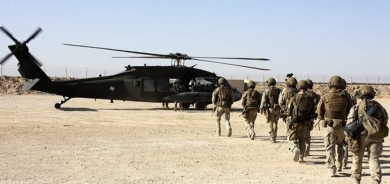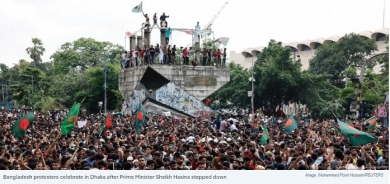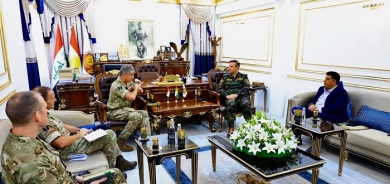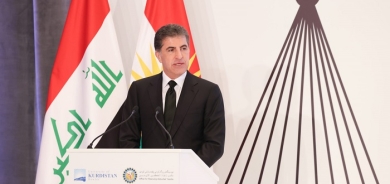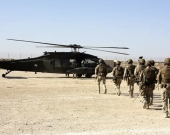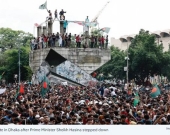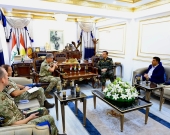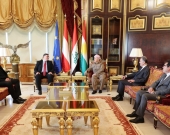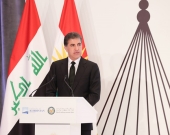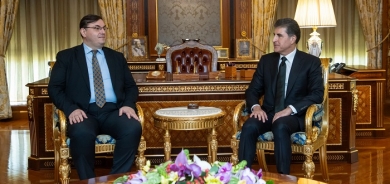Tehran's authorities destroy Sunni worship space

In 1997, Iran’s last official census recorded about five million Sunnis. The number has grown since then: today, an estimated one million Sunni Muslims live in Tehran province alone.
There are 47,291 Shiite mosques and 10,344 Sunni mosques in Iran, according to official statistics. Many of these mosques on the official record are tiny spaces serving small villages. However, there are no Sunni mosques at all in Iran’s large cities.
For decades, Tehran’s Sunni minority has sought to build a mosque but authorities have always prevented the construction. The Pahlavi dynasty, which ruled Iran from 1925 to 1979, refused to grant the Sunnis building permission. During the 1979 Islamic Revolution, Ayatollah Khomenai originally promised to let them build a mosque. However, after he took power, he changed his mind. Post-revolution, Shiite clergy gained power under the Shah’s rule and Tehran’s Sunnis lost hope of building a mosque.
Deprived of a mosque, Tehran’s Sunni minority use quasi-secret worship rooms. These rooms are usually mostly empty, void of the same objects and decoration found in a real mosque, and just used to gather and pray. According to our Observers, there are about four or five such worship rooms scattered throughout different neighbourhoods. However, Iranian authorities closed some of them on Thursday, July 29, though it was impossible to confirm how many were shut.
Tehran municipal officials went even further when they went to the large worship room in the Pounak neighbourhood, the only such space in the west of Tehran. Authorities, backed by security officials, systematically destroyed the room, knocking down walls and reducing much of the space to rubble.
Outcry after the destruction was widespread. Iranians—including both Shiites and Sunnis, people from different political parties and both political and human rights activists— have also openly criticized the government action. Grand Molavai Abodlhamid, Iran’s most prominent Sunni mufti, wrote a letter about it to Supreme Leader Ayatollah Khomeini and President Hasan Rouhani. Neither has reacted to the incident or responded to Abodlhamid’s letter.
“Some Shiite hardliners believe that Sunni Muslims have no right to have a worship room in a ‘Shia country’”
Saeed is a prominent member of the Iranian Sunni community. He lives in Tehran and has attended religious events held in the Pounak worship room.
The Sunnis in the west of Tehran used another worship room for many years but in 2011 the police shut it down.
A few months later, we opened another worship room in Pounak. We used it until last Thursday when, at 6pm, Tehran authorities backed by security forces broke in and started destroying it.
We are sure that the orders to do this came from high-profile officials. There are many hard-line, sectarian government officials who don’t care about human rights. Some Shiite hardliners believe that Sunni Muslims have no right to have a worship room in a “Shia country”.
On the other hand, the government often finances mosques for Shiite Iranians living in Sunni-majority villages. This is a crystal clear violation of human rights and Iranian constitutional law. While all Iranian officials are aware of this problem, I see no political will to address it. President Rohani’s more moderate government has no intention of creating problems by provoking the hardliners.
I believe that these hardliners are trying to goad the Sunni minority into a reaction. Then, they’ll use the Sunni outcry as a pretext for more suppression.
After the destruction of the worship space, an Iranian newspaper published a reaction statement from the Iranian delegate to the “World Forum for Proximity of Islamic Schools” [Editor: a position nominated by the supreme leader’s office].
“We will pursue this judicially and announce the result of investigations. The people who did this did something bad for the Islamic world, whether they were aware of it or not at the time. However, this was an isolated act and we must not consider all authorities or our ‘meritorious leader’ responsible.”
“Iran is afraid that there will be a rise in the number of Salafis in the country”
This incident occurs in a climate of heightening tensions between followers of Sunni and Shiite Islam in the region. The conflicts in Syria and Iraq have strong sectarian currents. In the past years, the continued presence of the Shiite Hezbollah in Lebanon and the Sunni Taliban in Afghanistan and Pakistan have also strained relations between the two branches of Islam.
Hasan Fereshtian is a specialist in theology and Iranian politics. He says:
In light of the current situation in the Middle East, Iran is afraid that there will be a rise in the number of Salafis in the country [Editor’s note: Salafism is an ultra-conservative Sunni movement that is often cited as the fastest-growing movement in modern-day Islam. The Al Qaeda group is made up of Salafi jihadists. In a previous article, our Observers testified that there are more than 1,000 Salafi jihadists in prison in Iran].
There are also Shia ultra-hardliners in the Iranian government who equate any observance of Sunnism with Salafism or the Islamic State jihadist group [Editor’s note: While both are Sunni extremist movements, there is actually a rivalry between the Salafi jihadists and the IS group].
They also see Sunnis as a dangerous rival for the relatively weak government.
Article 12 and 13 of the Iranian constitution says that all branches of Islam and Christianity have right to worship as do Jews and Zoroastrians. However, conversion from Islam to any other religion is completely “haram” [foribben] and illegal. Those who do convert risk execution.
Post written with FRANCE 24 journalist Ershad Alijani


